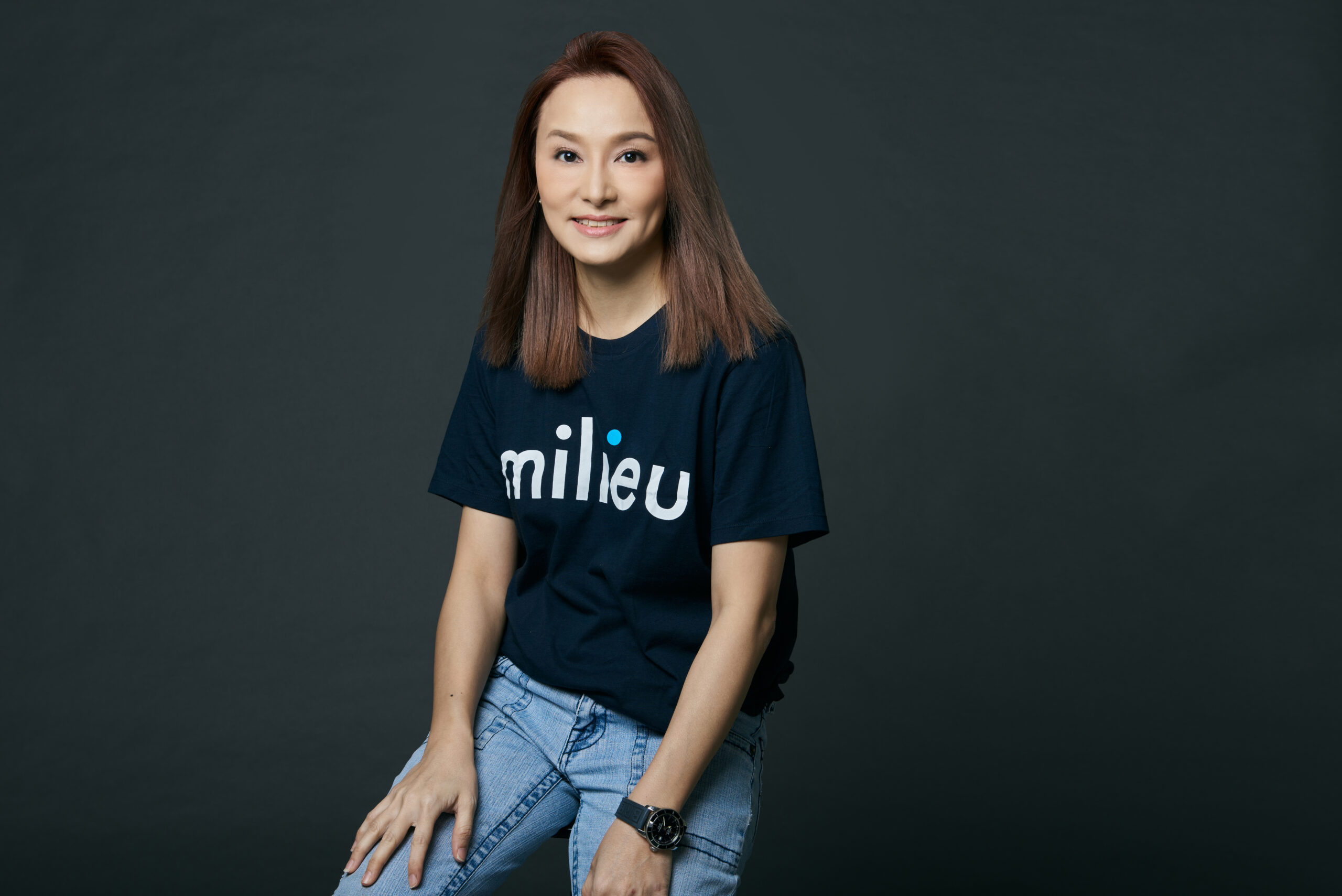The soul of the machine: Why human-led AI is the future of work
- Josephine Tan

“AI shouldn’t make work less human, it should make it more human. If we use it well, it gives leaders the space and information they need to focus on what really matters: developing people, building culture, and helping teams thrive.” – Juda Kanaprach, Co-Founder and Chief Commercial Officer, Milieu Insight
AI has become an inseparable part of modern life in Singapore. From planning trips to generating quick drafts of messages, 80% of Singaporeans now use AI tools for personal purposes, according to a recent survey by Milieu Insight. Younger people are leading the charge: 40% of those aged 16 to 24 report regular AI use, with many treating it as a natural extension of their digital toolkit for creative inspiration or productivity.
Yet despite this rapid adoption, boundaries remain firmly in place. Most respondents—87%—spend less than 30 minutes daily with AI tools, and when it comes to high-stakes decisions such as financial advice or mental health support, confidence plummets. Only 16% of Singaporeans reported turning to AI for financial guidance, and just 14% for mental health assistance.
This tension between widespread use and selective trust has clear implications for the workplace. For HR leaders, the challenge is not simply whether to adopt AI but how to do so responsibly, enhancing employee experience while preserving humanity that builds trust.
Juda Kanaprach, Co-Founder and Chief Commercial Officer at Milieu Insight, believes the survey findings reflect a pivotal moment for HR strategy. “While 80% of Singaporeans are using AI every day, most are engaging with it for light, tactical tasks. In the workplace, the real opportunity isn’t about automating tasks. It’s about how leaders use these tools to bring out the best in people,” she told HRM Asia.
The first wave of AI in HR has primarily focused on process automation—managing payroll, scheduling interviews, or answering basic employee queries. While these applications improve efficiency, they represent only the surface of AI’s potential.
“For HR leaders, that means moving beyond the ‘efficiency layer’ and using it strategically to strengthen the employee experience,” Kanaprach explained.
One promising area is personalised learning and development. Instead of generic training modules, AI can tailor career development paths to each employee’s aspirations and strengths, supporting a culture of continuous learning. Predictive analytics can also help identify emerging skills gaps, enabling HR teams to address issues before they escalate.
Equally powerful is AI’s capacity for real-time sentiment analysis. By tracking engagement trends and feedback, HR leaders can gain sharper visibility into workforce morale and make timely interventions.
However, Kanaprach emphasised that the goal is not to replace human leaders, but to empower them. “AI shouldn’t make work less human, it should make it more human,” she said. “If we use it well, it gives leaders the space and information they need to focus on what really matters: developing people, building culture, and helping teams thrive.”
Knowing the limits
Milieu Insight’s survey highlighted a crucial insight: people are willing to use AI for convenience, but they hesitate to trust it in areas that carry emotional or ethical weight. The same caution should guide AI adoption in HR.
“In HR, there are certain areas where human judgment can never be replaced, and AI should only play a supporting role,” said Kanaprach. “Think about the moments that define trust between people and their employer: handling sensitive performance conversations, supporting someone through a mental health challenge, or making tough calls on promotions and redundancies. Those decisions carry emotional weight and ethical nuance that no algorithm can replicate.”
AI can provide leaders with better context—such as highlighting patterns of disengagement or pointing to risks of attrition—but the final decisions must remain with humans. The danger of pushing technology too far, Kanaprach warned, is the erosion of trust. “When people feel they are being managed by an algorithm, it can strip away the humanity that builds trust and belonging. Once that trust is broken, it’s very difficult to rebuild.”
One of the most telling aspects of the survey was the way Singaporeans, particularly younger generations, are drawing their own boundaries with AI. Despite being digital natives, 59% of respondents aged 16 to 24 said they felt uneasy about AI replacing human interaction. Older respondents were even more vocal, with 51% of those aged 55 and above expressing concern about the loss of human touch.
Kanaprach believes this presents a blind spot for organisations eager to roll out AI at scale. “Just because employees use AI doesn’t mean they trust it. They’re fine with it helping with admin, but when it comes to performance reviews or career growth, they want transparency and the reassurance that a human is making the call,” she said.
A lack of communication is often where trust fractures. Employees need clarity about how AI is used, what data it analyses, and how decisions are ultimately made. Without transparency, even well-intentioned initiatives risk alienating the very workforce they aim to support.
“The blind spot is when organisations forget this and push too hard or fail to explain how AI supports people rather than replaces them. That’s when trust gets broken,” Kanaprach emphasised.
The survey also shed light on another emerging concern: deepfakes. While 94% of respondents said they had never been directly targeted, younger Singaporeans reported encountering suspected deepfakes regularly on social media platforms such as TikTok, Instagram, and Facebook. For some, these encounters even had adverse effects on mental health.
READ MORE: KPMG in Singapore blends AI with human touch to revolutionise talent acquisition
This trend points to a broader societal challenge around misinformation and trust in digital environments—issues that also spill into the workplace. HR leaders must ensure employees feel protected, not only from algorithmic overreach but also from external risks that could undermine confidence in digital tools.
As Kanaprach noted, “Data is only valuable if it helps people to make better, more human decisions. Tools don’t build trust, people do.”
A human-centred future for HR
The findings from Milieu Insight’s survey echoed Prime Minister Lawrence Wong’s recent remarks that Singaporeans will remain central to the nation’s economic strategy, even in an AI-driven future. For HR leaders, the takeaway is clear: AI adoption must be pursued hand in hand with safeguards, and an unwavering focus on the human experience.
The path forward is not about choosing between efficiency and empathy but integrating the two. AI can be a powerful ally in building a resilient, future-ready workforce, but only if it operates under the guiding principle that, as Kanaprach emphasised, “AI informs, but people decide.”
At its best, AI frees HR leaders to spend less time on processes and more time on people. It enables organisations to deliver personalised growth opportunities, foster belonging, and build cultures where employees can thrive. But its success will ultimately be measured not by how much work it automates, but by how much humanity it helps preserve.






